Mayur Gupta, author of the terrific Inspire Martech blog and the new SVP and head of digital at Healthgrades, is one of the people I admire most in this industry.
He was one of the first high-profile “chief marketing technologists” at a major brand, Kimberly Clark, where he graciously shared his experiences in numerous articles, interviews, and keynote presentations at conferences around the world — helping many others see the possibilities and the reality of that emerging new role. He’s an enthusiastic ambassador for marketing technology leadership, and he has continually served that role with an amazing combination of insight, eloquence, and humility.
He’s also been an invaluable advisor and contributor to the MarTech conference series, for which I am immensely grateful. (Quick promotional interlude: beta rates for MarTech Europe expire this Friday, and our call-for-speakers for MarTech 2016 in San Francisco is now open.)
Most of all, he’s been a great friend and an inspiration to me personally.
Since he recently made the transition from Kimberly Clark to Healthgrades, a shift from a “marketing” role to a “digital” one, I thought it would be a good time to do another Q&A with him, to learn how his perspective has continued to evolve.
1. Let’s start with an update of your career since our last Q&A back in January 2013. What have been your experiences over the past couple of years and what are you doing now?
That seems like 20 years back, with the pace at which our world is evolving and all the growth happening in the world of digital, marketing technology, and innovation.
Well, back then, I was the chief marketing technologist at Kimberly Clark within the CMO’s world, and my global organization was responsible to establish our digital footprint leveraging marketing technologies, data, and innovation.
Our biggest challenge and opportunity was to establish a connected marketing technology ecosystem that would deliver “seamless experiences in a complex omni-channel world” that would change “consumer behaviors” that we believed prevented our growth. So, more than just bringing a sleuth of enterprise and emerging marketing technologies, we focused on how we could “apply” them to address behavioral issues like “trust,” “stigma,” “trial” that would eventually maximize the life-time value for our brands.
The key to success for most brands is to shift the focus from channels and technologies to the human behavior and becoming customer obsessed, both in strategy and execution.
It was a fascinating journey for me, and my biggest takeaway has been a firm belief that, at the end of the day, it was always about the “human”, her needs, desires, and finally her behavior — and not about the technology or the channel. The key to success for most brands is to shift the focus from channels and technologies to the human behavior and becoming consumer obsessed, both in strategy and execution.
As of August 2015, I have been part of an equally fascinating organization called Healthgrades as their senior vice president, head of digital. My role, broadly, is to lead the digital transformation and establish ourselves as the largest digital center for care that delivers “seamless healthcare experiences in this complex digital and omni-channel world”.
In fact, we have gone on record to say that as an industry we cannot fall into the trap of “digital healthcare” where digital becomes a “thing,” but understand the nuances of enabling and evolving “healthcare in a digital world”.
It’s an incredible journey in a growth organization where everyone is passionate about changing lives using the power of data, technology and communication — enabling every American to find the right doctor, the right hospital, the right care at a time, location, and touchpoint of their choice.
2. Tell us about your decision to move from marketing into a “digital” leadership role. How would you characterize the similarities and differences between marketing and digital? Where are the boundaries?
That’s an interesting question because it can be answered with so many different connotations that vary from one industry to the other.
Personally, I don’t see the difference between digital and marketing. I firmly believe all marketing is digital today.
Personally, I don’t see the difference between digital and marketing. I firmly believe all marketing is digital today. Or perhaps, let’s call it something like “phygital,” where it’s no longer traditional analog marketing and digital marketing, but one — because that’s how the consumer sees it. For her it’s one experience that should get her the best product, at the best price, at a time, location ,and channel — offline or online — of her choice.
One of the things my former boss, Kimberly Clark CMO Clive Sirkin, always mentioned was in order to become a legendary brand we had to believe in “marketing in a digital world” and not digital marketing. Now, that’s the marketing perspective and the role of digital within it.
On the flip side though, there are verticals where the role of digital goes much beyond the world of marketing. For instance retail, financial institutions, travel & hospitality, and many more. Marketing is still digital, however the scope of digital is beyond marketing. For retail, it could be the digitization of the retail shopping experience. For a QSR chain, it could be the experience within the restaurant. And, of course, much more for a financial and banking institution.
That’s why the role of a chief digital officer becomes more relevant in organizations where the scope of digital is broader and central to just not marketing, but also operations, supply chain, transactions, and other functions.
At the end of the day, it’s still delivering seamless experiences that inspire participation and change behaviors.
In my context, it is a continuation from applying the power of digital technologies, data, innovation ,and storytelling to build legendary brands and change consumer behaviors to now building the largest “digital marketplace for care.” But at the end of the day, it’s still delivering seamless experiences that inspire participation and change behaviors.
3. How is marketing technology having an impact — or has the potential to have an impact — on the evolution of healthcare?
Massive would be an understatement. Being fairly new to the world of healthcare and wellness, I have been extremely surprised to see the current awareness and demand, as well as the future opportunity, that marketing technology, data, and content will bring to the evolution and positive disruption of healthcare.
Our CEO, Roger Holstein, at Healthgrades has often said “communication” is the next innovation chapter that will redefine healthcare. For me, that means getting the right content to the right person at the right time at a channel and touchpoint of their choice to inspire behavioral change and participation. Realizing this vision though requires a connected “marketing technology” ecosystem that thrives on “data” know and understand her emotional and functional needs and then syndicates the right “content” seamlessly across channels.
The role of marketing technology — which for me includes adtech as well, never saw them as isolated — in healthcare will continue to grow across media, content, data, and connectivity, including enterprise, on point, as well as innovative solutions.
A dream for a marketing technologist, as long as you are able to apply these technologies to consumer behaviors and business needs.
Whether these are marketing automation platforms, web experience management systems, social listening, and consumer engagement technologies — or more advanced cross-channel analytics and attribution models or DMPs/DSPs/SSPs and programmatic, it is all happening here. A dream for a marketing technologist, as long as you are able to apply these technologies to consumer behaviors and business needs.
4. It sounds like there are tremendous opportunities to embed “marketing” — in a very broad sense of the word — into the ongoing healthcare relationship and experience. What parallels do you see that marketers in other industries should consider?
You know, for the longest time you and I, and many others, have been discussing how every technologist needs to be a marketer, a storyteller, and so on — while every marketer should be a technologist, a data scientist.
Every technologist needs to be a marketer, a storyteller, and so on — while every marketer should be a technologist, a data scientist.
The other day, I was talking to a young oncologist at one of the premium hospitals in Chicago, and we were discussing how the modern physician will have to think like a marketer. Traditionally, they have grown up focusing on clinical results alone, but now they need to think about consumer experiences, convenience, and striving to build always-on engagement with their patients — especially during those 360 days of the year when she is not in front of them.
Now [physicians] need to think about consumer experiences, convenience, and striving to build always-on engagement with their patients.
At the end of the day, regardless of what role you play in healthcare, from the payers to the providers and the health systems, it’s all about the ability to deliver “always-on seamless care experiences in a complex digital world.” Who would have thought a few years back that the largest health systems around the world would be pushing to become legendary brands, would be hiring senior marketing executives as CMOs — not as chief medical officers, but as chief marketing officers? That’s the evolution healthcare is going through.
And I recently published the 5Cs of modern marketing with Vala Afshar on the Huffington Post, they hold even more true in healthcare:
- CONSUMER
- CONTEXT
- CONTENT
- COMMERCE
- CONVERGENCE
5. In the digital transformation of healthcare, who are the different stakeholders designing these solutions? Are there analogies to the CMO/CIO divide that we initially faced in marketing technology? Or have different models of collaboration emerged?
That’s always an interesting aspect and partnership. It’s changing pretty quickly, to be honest. There are different players today depending what part of the ecosystem you represent.
If you are a large health system with multiple hospitals, it’s traditionally been the chief strategy, the chief finance and the chief executive officers, but they are starting to bring chief marketers (CMO) and chief digital officers (CDO) to partner with the chief information officers (CIO), who have been there all along.
One subtle difference though, from the other industries, is that the traditional scope of the CIO in healthcare is still so massive and relevant, especially in terms of back-end connectivity across the ecosystem, health records, biotech, genomics, and many other areas that there is an easier collaboration and appreciation of marketing and digital technologies being brought on by the CMO and/or the CDO.
I also feel that since healthcare is walking down that same aisle behind some of the other industries, the leaders have seen the movie being played and are starting to learn from the mistakes. There is a clear sense of getting to the same point, but in a more effective and efficient way.
6. In considering your company’s digital capabilities, how do you weigh which technology components to build as a competitive advantage and which ones to buy from the open market? What could marketing technology vendors do to better help you?
That’s a million dollar question for every organization isn’t it but if you get this right you get a lot right.
As a company, we have a very strong alignment at the senior executive level in terms of where we have the right to play and the right to win, which ultimately drives what we build, buy, or rent.
We strongly believe in our core competency being: 1. The most effective, accurate, and connected healthcare and wellness data exchange data at a consumer, provider and facility level. 2. Our ability to predict health conditions and behavior at a micro-segment and individual. And then 3. using that intelligence and predictive models to communicate the right message to the right individual at the right time, bringing to them the best doctor, the best hospital, and the best care while maximizing growth and lifetime value for health systems and hospitals.
This reality includes a number of strategic partnerships with some leading enterprise marketing technology players, as well as different start-ups and point solutions. While we apply these technologies, we continue to build and develop unique capabilities and integrations that don’t exist in the marketplace that is still highly fragmented and isolated.
7. What updated career advice would you offer to marketing technologist and aspiring marketing technologists?
Still not sure if I am worthy of giving advice, but there are three foundational lessons I have learned especially as a technologist in the second half of my career:
It has always been about the human; #HumanFirst. The ultimate goal is not technology but getting her the best product and experience.
First, it has always been about the human; #HumanFirst. The ultimate goal is not technology but getting her the best product/experience, at the best price, at the best time, and at a time and location of her choice. Nothing else matters more.
Second, driving top line growth and lifetime value for the business by selling more products to more people more often for more money — a lesson I learned from my mentor Tony Palmer, President Kimberly Clark.
Lastly, this quote from Albert Einstein that is my motto as well — “If you can’t explain it simply, you don’t know it well enough.” Marketing technology at the convergence of art and science.
Thank you, Mayur!

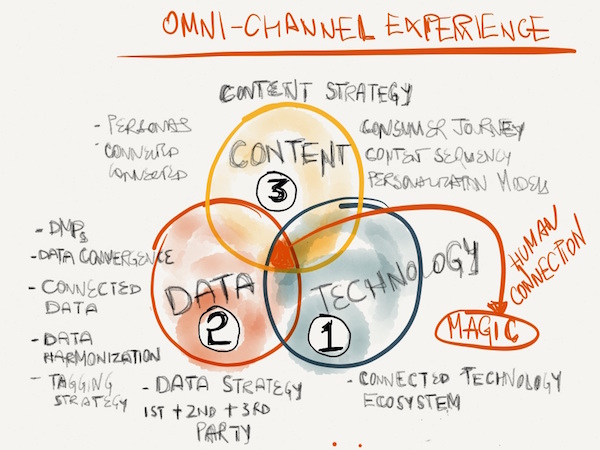
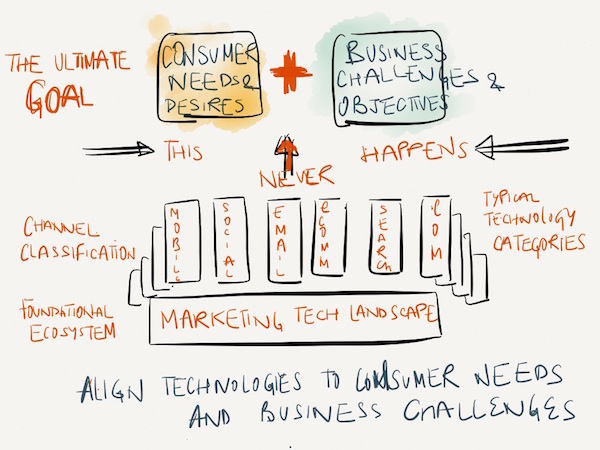
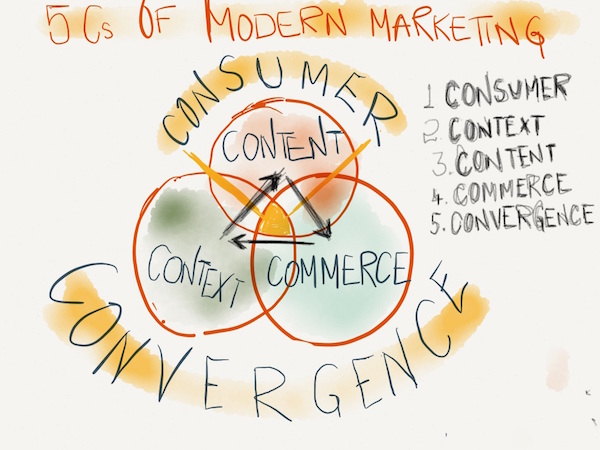
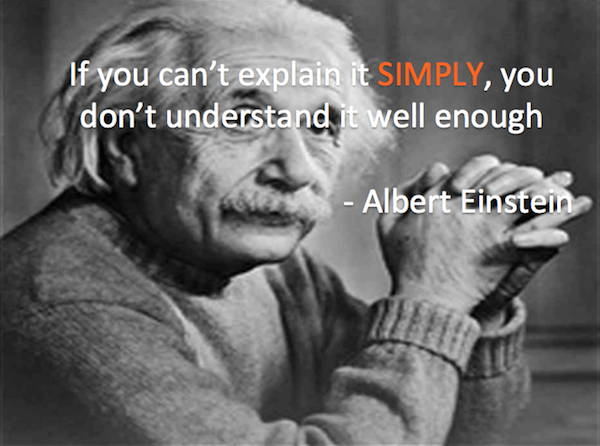

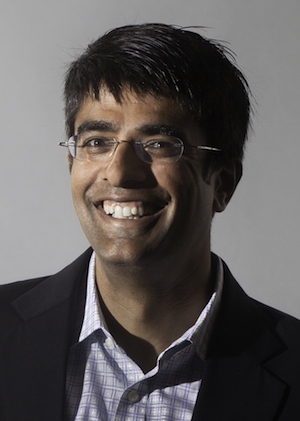
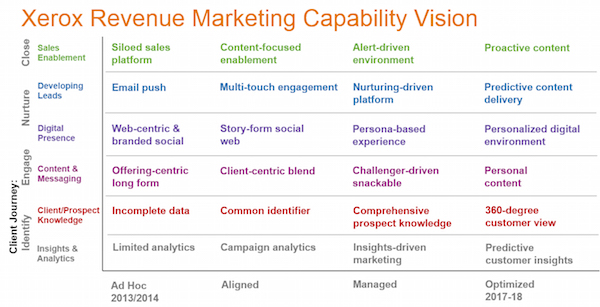
Excellent interview, Scott! I think he says it best at, “The key to success for most brands is to shift the focus from channels and technologies to the human behavior and becoming customer obsessed, both in strategy and execution.”
Technology can help enhance marketing efforts only when you truly understand who your ideal prospect is, what they want, and what they need!
Using technology in marketing will only be effective if you really know your targeted market is. You have to identify your potential customer first before you will have the strategies in reaching with them and promote or introduce your services and products with clients. This is a very inspiring interview. I know a lot of people will benefit from this. Good luck to you!